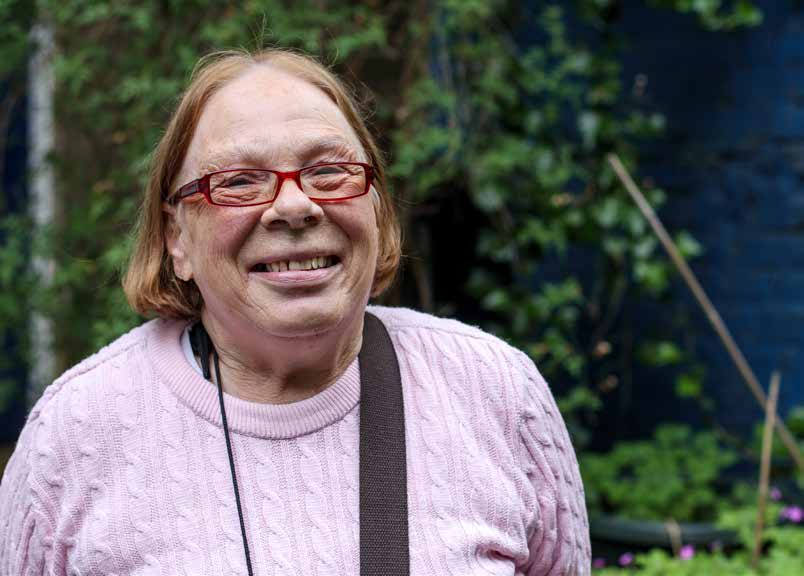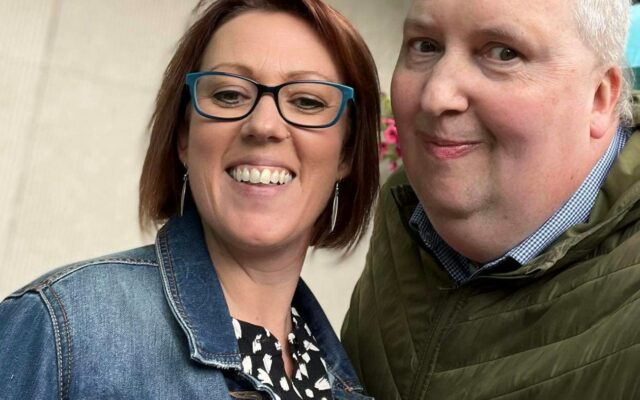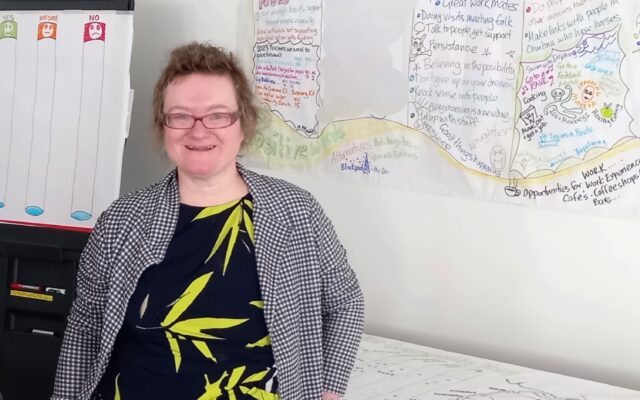I am at the Elfrida Society to meet Linda Doherty. We are going to celebrate that she has been involved with and supported by Elfrida (as everyone calls it) for just over 50 years, since she was 20 years old.
I myself worked for the charity, which supports people with learning disabilities in Islington, for over 20 years, but that pales beside Linda’s five decades. She has brought a pile of photos to help us look back on the old days.
What first brought her to Elfrida? “It was learning to read and write with Carola,” she says. She is referring to the education unit, later called Learning for Life and Work. “But Carola can’t have been here 50 years ago?” I ask.
And so we are off reminiscing and looking at photos and she summoning up the names of lots of staff and students from the past.
“I love to see all the old faces again,” she says. “What made my day was when we had the old crowd here. The old days. We all used to get on with one another. Yes, that was the good days!”
After attending reading and writing classes Doherty remembers moving on to City and Islington College for further classes. Meanwhile, she joined the Culpeper Gardening Group, which was run by Community Gardens in association with Elfrida. Group members plant, water, weed, harvest, cook and eat their own vegetables.
Doherty has an old cutting from a local paper celebrating a huge bulb of garlic grown by the group, but there was no photo of the garlic bulb in the paper: “Unfortunately it had already become part of lunch.”
Doherty shows me some pictures from when she did voluntary work for another local organisation called Centre 404, where she supported a group of young people with learning disabilities. “I helped the little ones. I [did] the sandwiches and I was showing them how to use a cheese-grater,” she says.
Speaking up for access
Finding homes for supported living can be difficult. Lisa Brown is bringing property investors and care providers together to design and create accommodation to meet various needs.
Back at the Elfrida Society, she joined the Power and Control group, which campaigned for the voices of people with learning disabilities to be heard, and for all kinds of services to be made more accessible.
She remembers the group going to University College Hospital to help give feedback on accessible information about epilepsy. “I have got epilepsy. Somewhere here” Đ she taps her head Đ “I’ve had it since I was 5.
“You’ve got to explain it to [the staff] when they [people with epilepsy] come in to the hospital. So they can understand it and they don’t get worked up with people and all that lark.”
She also remembers the Power and Control group giving feedback and advice to Transport for London: “We said we need things like clamps on the floor of buses so the wheelchairs don’t move about.”
In a more recent meeting with the police, she and other members told them to “crack down” on people using electric scooters on the pavement: “They are dangerous. It’s not fair if anyone has got a walker.” Doherty speaks from experience, as she has used a walker to get around for some years.
The Power and Control group used to make presentations to Islington Council’s Learning Disability Partnership Board. She was invited to become co-chair alongside Sean McLaughlin, Islington’s director of housing and social care at the time.
Meetings were held in a big committee room at the Town Hall and lots of people attended. Was she nervous? “No.”
She describes the experience as “all right” although she had to point out that staff always spoke first and said what they wanted, and she and the other members of the Power and Control group had to demand extra time to say what they wanted.
I spoke to McLaughlin recently, who now works for Homes for Haringey. “I guess it was through working with Linda at the partnership board that I realised how limited my previous expectations of co-production had been,” he says.
“I have no doubt she made the same impact on many other people so, altogether, a great many professionals will have improved their practice just by witnessing her in action. The victory for equality will be won by thousands of small contributions and I hope Linda is proud of hers.”
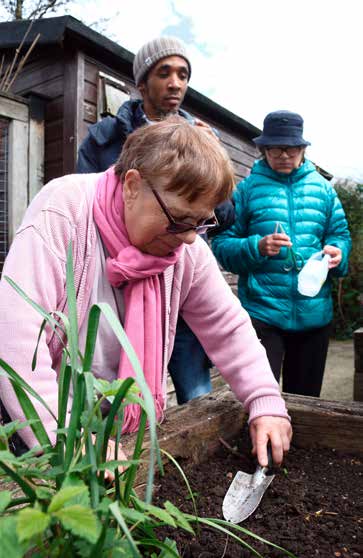
People’s champion
Finding homes for supported living can be difficult. Lisa Brown is bringing property investors and care providers together to design and create accommodation to meet various needs.
It was most likely her work as co-chair of the partnership board alongside her other voluntary work that led to Doherty being chosen as a “people’s champion”.
Doherty found out about from a letter she received in the post. She thought it was a mistake: “I said to Vince [support worker]: ‘It doesn’t belong to me’. And he said I have put you in for it. For helping out.”
So she was presented with a certificate naming her a community hero and thanking her for helping “to make Islington a better place”.
She remains proud, but adds with a shrug: “I’ve got loads of certificates, but they are all indoors. I can’t find them. I have got so many.”
Doherty originally lived at home with her parents: “My mum was in a wheelchair and my dad used to lift her out of the wheelchair and all that.”
Having her own place clearly gave her more self-confidence and freedom. “I’ve done all what I want,” she says, smiling. Her brother Lennie, who is one year older than her, keeps in touch and rings her every night to make sure she is OK.
I liked Elfrida because we all
mucked in and talked. We had
great days, we did. Elfrida
helped me get my own flat
and to stand on my feet
This continues even though Doherty now lives with her partner Bob, who moved in with her a while back. She is pleased that Bob’s name is “on the rent” so everything is above board.
Home and holidays
Finding homes for supported living can be difficult. Lisa Brown is bringing property investors and care providers together to design and create accommodation to meet various needs.
We have a good chuckle at some of the photos Doherty has brought in. She shows me a great one of herself on holiday with a small group of friends. She is wearing a great pair of green hiking shorts.
“That was in Exeter with Jenny Barrett,” she says and I know she is referring to the person who used to lead Elfrida’s Homelink service for people living in their own homes.
With help from Elfrida advocacy staff, Doherty was able to get a solicitor who helped her to arrange to get her support from the Westminster Society. Some former Elfrida staff were working there, and she was very happy to get support from people she had known for many years.
Another photo has her laughing. It shows her with her old friend Tracy Sterling. In the photo, they are on an Elfrida day out to Chessington World of Adventures.
“I always remember that. Tracy had a go on one of the things and she won that Đ a huge stuffed monkey with a banana on its hand. It was bigger than her. And she said what can I call it? And I said well we have already got Vince so why don’t you just call it Vincent 2?”
She laughs and I can recall the innocent fun that they had when introducing Vince to a very large monkey called Vincent 2. Did he mind? “No, he didn’t mind at all. We had to take Vincent 2 home on the coach.”
A few years later, Tracy Sterling died. “It was really heart-breaking when she went,” says Doherty, but we both agree it is good to remember her with laughter.
During the pandemic, Doherty has kept in touch with people by phone, and although she attended meetings via her tablet, she is not a fan. “I am too old to think about all that kind of lark,” she says with a grin.
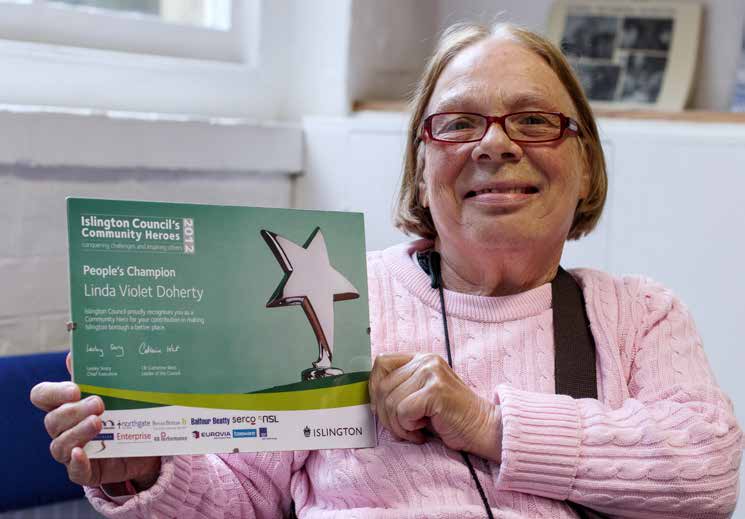
A good life
Finding homes for supported living can be difficult. Lisa Brown is bringing property investors and care providers together to design and create accommodation to meet various needs.
Looking back, Doherty says she has had a good life. She has been happy. Her proudest achievement is having her own flat, now shared with Bob.
Her happiest times, she says, were with her old friends at Elfrida. “I liked Elfrida because we all mucked in with people and talked with people. We had great days, we did. Elfrida helped me get my own flat and to stand on my feet about my money and everything.”
Doherty is still a member of the walking group and the gardening group. “I said to Dolly [Elfrida chief executive Dolly Galvis] if she wants any more help I’ll come and help. I’ll come and do the garden for her”. It’s a great offer. .
Thanks to Deborah Kober and Dolly Galvis at the Elfrida Society for their assistance with this interview.


